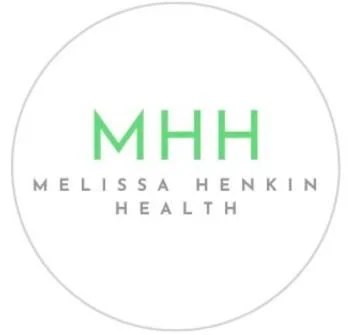How To Improve Your Gut Health
I recently led a corporate lunch-and-learn where the topic of discussion was gut health. We covered a lot of information and material, including what a “healthy gut” actually means, why your gut health matters, and how to improve the health of your gut. Since this topic is so important, and a healthy gut is crucial for supporting and improving many aspects of your health and weight, I wanted to share the key points with you!
For starters, did you know that the gut isn’t just for digestion?
Your gut actually influences all aspects of your health, including your immune system, energy levels, weight, mental health, and skin health.
Additionally, many symptoms you may experience- whether bloating, fatigue, sugar cravings, mood swings, or brain fog- are all connected to the health of your gut.
And if you find that you’re often getting sick, it’s probably because approximately 70% of your immune system is housed in your gut, which is another reason why your gut health is so crucial.
To understand it all better, it’s important to know what “gut health” and a healthy gut mean.
Your gut refers to your entire digestive tract, from your mouth to your colon. In fact, your digestion begins as soon as your food enters your mouth because your salivary glands produce amylase, which breaks down starches. Your gut microbiome, on the otherhand, is referring to the trillions of bacteria and organisms in your intestines (which is where your gut is).
A healthy gut = better nutrient absorption, fewer toxins, more consistent energy, leveled moods, and improved resilience.
Nutrition’s Role in Your Gut:
Food plays a large role in the health of your gut, and certain foods support a balanced gut while certain foods destroy the good bacteria and create a poor gut health.
Foods that heal:
Fiber-rich foods: This includes the more obvious ones, like fruits (specifically apples, bananas, kiwi) and vegetables (especially leafy greens, broccoli, avocado), but also oats, chia seeds, flax seeds, nuts, and legumes.
Fermented foods: This refers to foods that have gone through a process to convert the sugars in the food into other products and improve the nutritional content of the food, including making the food more easily digestible. Fermented foods include yogurt, kefir, kimchi, sauerkraut, kombucha and sourdough bread.
Prebiotics: Prebiotics are necessary because they feed the probiotics, or healthy bacteria, in your gut. You can eat your prebiotics by incorporating garlic, onions, bananas, and apples (pectin) into your diet.
Hydration is crucial, as it helps support digestion by moving the fiber and flushing out the toxins and waste.
Foods that harm:
It’s important to be mindful of the foods you consume when it comes to your gut health, and the following are foods that can wreck havoc on your gut, especially when eaten regularly and consistently:
Excess sugar: this could be anything from cookies and cakes to salad dressing and ketchup- there is added sugar in many foods, which only feeds the unhealthy and cause digestive issues.
Highly processed foods: this would be foods with a long list of ingredients, added sugars and seed oils that really mess with your gut health and the diversity of the gut.
Artificial sweeteners- while there might be an appeal to have fake sugars as a way to avoid eating too much regular sugar, these artificial sweeteners are mostly chemicals going into your system, which as you can imagine, your gut does not react well to.
Low-fiber diets- considering the importance of fiber for a healthy gut, it’s somewhat obvious that a low fiber diet can harm your gut health, however, many of us don’t realize that we’re not getting quite enough fiber throughout the day. As you begin to increase your fiber intake, you want to make sure you also increase your water, as previously mentioned.
Excessive alcohol- We know that alcohol is not exactly on the list of healthy choices for our health or weight, however it’s important to know that alcohol, specifically an excessive and regular intake, will mess with the bacteria in your gut and lead to an imbalanced microbiome.

